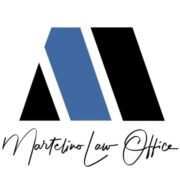Best Drug Crime Lawyers in San Juan
Share your needs with us, get contacted by law firms.
Free. Takes 2 min.
List of the best lawyers in San Juan, Philippines
About Drug Crime Law in San Juan, Philippines
Drug crime in San Juan, Philippines falls under the comprehensive illegal drugs law overseen by the national government. The principal legal framework is the Comprehensive Dangerous Drugs Act of 2002 (Republic Act No. 9165), which outlines stringent measures against those involved in the production, trafficking, and use of illegal substances. San Juan, a city within Metro Manila, strictly enforces these regulations as part of the broader initiative to combat drug-related offenses in the region.
Why You May Need a Lawyer
Legal assistance is often crucial in drug crime cases due to the complexity of the charges and the severe penalties involved. Common situations requiring legal help include being charged with possession or distribution of illegal substances, involvement in drug trafficking operations, or if you are a victim of unlawful arrest or procedural errors during a drug bust. An experienced lawyer is essential to navigate these challenges, ensure a fair trial, and work towards the best possible outcome.
Local Laws Overview
San Juan, adhering to national laws, treats drug-related offenses with severity. Key local legal principles include the prohibition of drug possession, manufacturing, and distribution unless authorized for medical or scientific purposes. The law imposes stringent penalties including life imprisonment and fines for large-scale trafficking offenses. Efforts are also made to combat drug abuse through rehabilitation and education programs, with a focus on reducing demand as much as on punishing supply.
Frequently Asked Questions
What constitutes a drug offense in San Juan?
A drug offense can include possession, manufacturing, trafficking, and distribution of illicit substances. The severity of the charge varies based on the amount and type of drug involved.
What are the penalties for drug trafficking?
Penalties for drug trafficking can be severe, potentially resulting in life imprisonment and hefty fines, particularly if large quantities of drugs are involved.
Can I be charged for drug possession if it's for personal use?
Yes, even possession for personal use is punishable under Philippine law, and individuals may face imprisonment or be required to undergo rehabilitation.
Is there a possibility for rehabilitation instead of incarceration?
In some cases, first-time offenders caught with small amounts of drugs may be eligible for court-mandated rehabilitation instead of incarceration.
How can a lawyer assist in a drug crime case?
A lawyer can help by providing legal representation, building a defense strategy, ensuring your rights are protected, and negotiating plea deals or alternative sentencing options.
What should I do if I am arrested for a drug crime?
Seek legal counsel immediately. It's crucial to have a lawyer present during questioning and to ensure all legal procedures are followed correctly.
What are my rights during a drug-related arrest?
During an arrest, you have the right to remain silent, the right to an attorney, and the right to be informed of the charges against you. Ensuring these rights are respected is essential for a fair legal process.
Can I be falsely accused of a drug crime?
Yes, false accusations can occur. Having legal representation is critical to challenging unfounded charges and proving innocence.
Is bail possible for drug-related charges?
The possibility of bail depends on the specific charges and severity. Legal counsel can assist in navigating bail procedures where applicable.
Are there any legal reforms affecting drug laws in San Juan?
Drug laws are periodically reviewed at the national level. It's important to stay informed of any changes, often through legal counsel or governmental updates.
Additional Resources
For those needing further assistance, the following resources can be helpful:
- Philippine Drug Enforcement Agency (PDEA): The lead agency responsible for combating illegal drugs in the Philippines.
- Integrated Bar of the Philippines (IBP): The national organization of Filipino lawyers that can provide legal aid and resources.
- Local Government Units (LGUs): These offer community-based programs on drug rehabilitation and prevention.
- Department of Justice (DOJ): Oversees the prosecution of criminal offenses, including drug-related cases.
Next Steps
If you require legal assistance in a drug crime case, the first step is to consult with a licensed attorney specializing in criminal law. Be proactive in seeking legal advice and ensure you understand your rights and options. Contact local legal aid societies or the Integrated Bar of the Philippines if you cannot afford private counsel. Taking prompt and informed action can significantly impact the outcome of your case.
Lawzana helps you find the best lawyers and law firms in San Juan through a curated and pre-screened list of qualified legal professionals. Our platform offers rankings and detailed profiles of attorneys and law firms, allowing you to compare based on practice areas, including Drug Crime, experience, and client feedback.
Each profile includes a description of the firm's areas of practice, client reviews, team members and partners, year of establishment, spoken languages, office locations, contact information, social media presence, and any published articles or resources. Most firms on our platform speak English and are experienced in both local and international legal matters.
Get a quote from top-rated law firms in San Juan, Philippines — quickly, securely, and without unnecessary hassle.
Disclaimer:
The information provided on this page is for general informational purposes only and does not constitute legal advice. While we strive to ensure the accuracy and relevance of the content, legal information may change over time, and interpretations of the law can vary. You should always consult with a qualified legal professional for advice specific to your situation.
We disclaim all liability for actions taken or not taken based on the content of this page. If you believe any information is incorrect or outdated, please contact us, and we will review and update it where appropriate.









